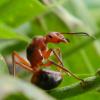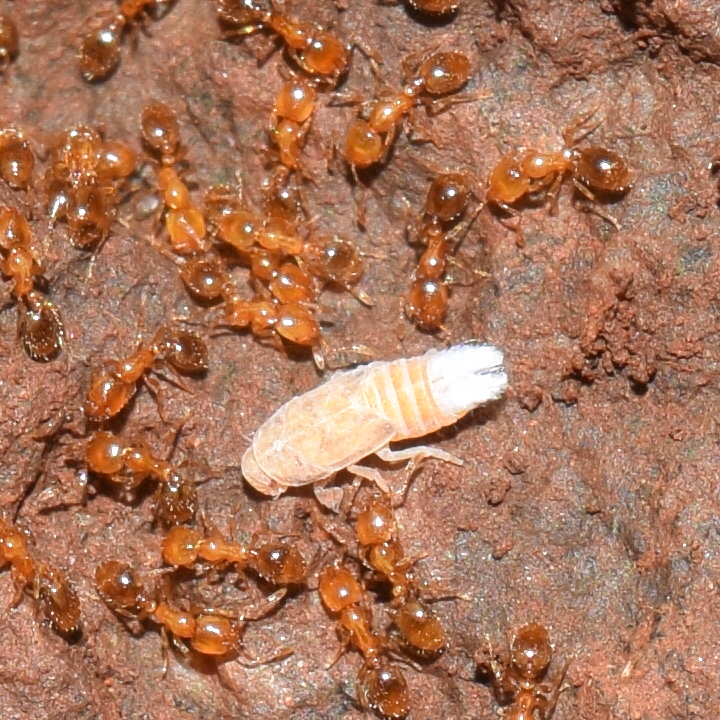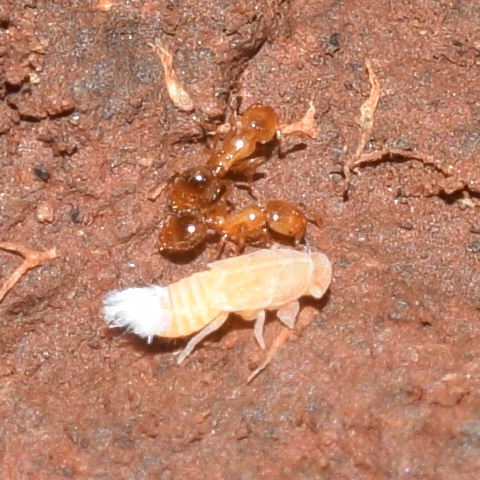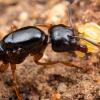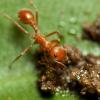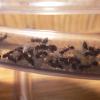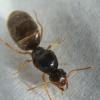Flipped a rock and found a large colony of Solenopsis sp, complete with symbiotic leafhoppers. Leafhoppers are not dependent on the ants, I usually see them in groups of their own species. they weren't isolated in chambers like root aphids or other hemipterans usually are, instead spread throughout the nest.


